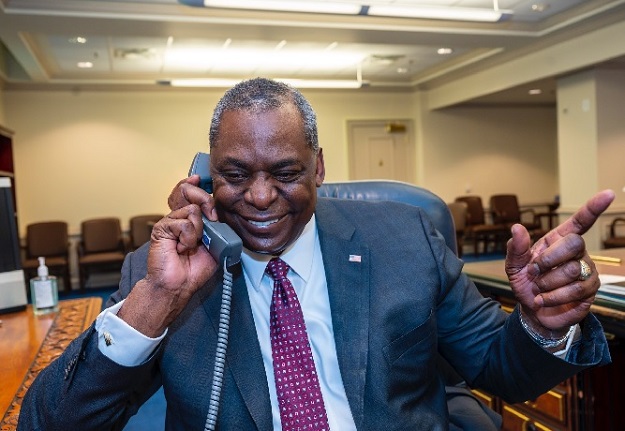As the 'historic' Quad summit ended Friday evening after almost one hour and 45 minutes of virtual huddle between Narendra Modi, Joe Biden, Suga Yoshihide and Scott Morrison – and with a promise to meet in person before the end of the year – it also kicked off what the United States describes as an 'intensive stretch of diplomacy' in the region.
With the US President choosing it as the first multilateral summit he’s hosted since taking office – "that’s on purpose," said the Biden adiministration – the Quad has been taken to a new level. The process of cementing a group of strong democracies that will work together going forward to secure a free and open Indo-Pacific has already begun.
With Biden reiterating belief in the centrality of the Indo-Pacific to the national security of the United States, top US officials are getting on the road this weekend to deliver results before the strategic dialogue takes place in a physical meeting later in 2021.
Antony Blinken, the US Secretary of State, will be in Tokyo from March 15 to 17 holding a Foreign Ministers Meeting with Motegi Toshimitsu, the country's Minister for Foreign Affairs.
Additionally, Lloyd Austin, the US Secretary of Defense, will also visit Japan during the same period to hold the Japan-US Security Consultative Committee (2+2) on March 16 along with Japanese Minister of Defense Nobuo Kishi.
On March 17-18, Blinken and Austin will attend another Foreign and Defense Ministerial (2+2) hosted by Seoul.
"At a time when the region is facing mounting pressure from People’s Republic of China and the continued threat from North Korean nuclear weapons and ballistic missile programs, this trip sends an important signal of resolve to work with allies, partners, and like-mindeds to promote a peaceful, stable, and resilient order that benefits us all," said David Helvey, the Acting US Assistant Secretary of Defence for Indo-Pacific Security Affairs, last night.
While Blinken travels back to Washington and then to Anchorage, Alaska to meet senior Chinese officials, Austin will leave Seoul to travel onward to India, an important strategic partnership that involves cooperation with "likeminded nations committed to protecting the rules-based international order".
In India, Austin will meet with Defence Minister Rajnath Singh and others to discuss operationalizing the major defense partnerships between the two nations, including through enhanced information sharing, regional security cooperation, defense trade, and cooperation in new domains.
After the Logistics Exchange Memorandum of Agreement (LEMOA) in 2016, the Communications Compatibility and Security Agreement (COMCASA) in 2018 and the Industrial Security Annex (ISA) in 2019, India and the United States had last year signed the Basic Exchange and Cooperation Agreement (BECA), taking their growing friendship to a new high. BECA — which is related to sharing of geospatial intelligence information — was the last of the four military communication foundational agreements waiting to be signed between India and the US.
India's North East can help shape Asia's future, says Japan
India adds a strong dose of cultural diplomacy to reinforce ties with Nepal
On Mahashivratri, India strengthens the civilizational bond with Sri Lanka
With the four leaders discussing the challenge posed by Beijing during the Quad summit Friday, and they made clear that none of them have any illusions about China, Austin's trip to New Delhi is to further advance cooperation with India for a free, prosperous and open Indo-Pacific and Western Indian Ocean Region.
Japan PM Suga, while discussing the 'Free and Open Indo-Pacific' yesterday, had stated that this vision has spread in the international community including ASEAN and Europe, and that they need to cooperate with more countries for the realization of this vision. The four leaders shared the view to cooperate with a range of partners. They also confirmed their strong support for the 'ASEAN Outlook on Indo-Pacific' which is ASEAN’s proactive efforts, and ASEAN’s unity and centrality.
The four leaders had also concurred to facilitate collaboration to meet challenges to the maritime order based on rules such as international law including United Nations Convention on the Law of the Sea, in the East and South China Seas.
During the third India-Australia-Japan-USA Quad Ministerial meeting held last month, India's Minister of External Affairs S. Jaishankar had already emphasized everyone's commitment to uphold a rules-based international order, underpinned by respect for territorial integrity and sovereignty, rule of law, transparency, freedom of navigation in the international seas and peaceful resolution of disputes.
Quad, as the diamond of the democracies in the region, is definitely building into something bigger.




















